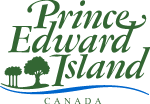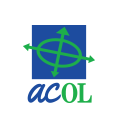PEI PPR News
 
This issue of the PEI PPR News is designed to help you prepare for working with the new Personal Property Registry and ACOL* as we approach legislative proclamation. Welcome! As the winter days pass, the Personal Property Registry Implementation Team continues to work toward the implementation of the new PPSA legislation and its supporting systems. When the new legislation is proclaimed, paper documents such as Bills of Sale, Conditional Sales Agreements, and Assignment of Book Debts will no longer be accepted over the counter at the courthouses, but will instead need to be registered in the new electronic registry. Since all clients must be ready for the change, we’re working hard to ensure everyone is ready. This edition is extra-long since we aren’t quite prepared to totally give up on paper just yet! Proclamation Date As of press time the official proclamation date for the new PPSA legislation and the start of operations under the new system has not yet been confirmed. We are still targeting a date in March or April of this year and are working to ensure that everything is in order before making an official announcement. Proclamation will likely occur over a weekend which means that documents prepared at your business location on the Friday before proclamation will not be accepted over the counter at the courthouse on the Monday of proclamation. More importantly, the "old" documents will not be perfected or hold a position of priority unless they are prepared and registered as per the new Act. Not being ready for the change exposes you to the risk of another secured party registering a notice against the same collateral and establishing priority over your notice. Look for an announcement in the near future regarding an official proclamation date. Legislation Availability Being a user-driven system, it is important that users understand both the PPSA legislation and regulations in addition to the functionality of the PPR system. For a copy of the Personal Property Security Act, S.P.E.I. 1997, Cap. 33, and the subsequent amendment, Cap. 67, contact:
Access to the PEI PPR The Personal Property Registry (PPR) of Prince Edward Island will be the second database service available through ACOL. For non-ACOL clients, you must establish a client account with ACOL to gain access to the PEI PPR. The first step to gain on-line access includes completion of the ACOL Client Application and Financial Agreement Forms found in the ACOL Information Kit. To request your kit, call the ACOL Client Support Centre at 1-888-624-ACOL. A client support representative will be pleased to take your name and address and forward the requested kit to you. Information kits are expected to be available during the week of February 16. When you receive the kit, complete all details and return them to ACOL. When the forms are received and verified, your ACOL client account will be created. As indicated in the kit, ACOL Desktop software will be required for each workstation. There is a $200 Software License fee (plus applicable taxes) for each original software copy. While it is expected that most usage of the new PPR will be completed remotely, there will be access terminals located at the courthouses in Charlottetown, Summerside, and Georgetown. However, you must have an ACOL client account and user ID. In addition, the registry staff will be available for assistance and support, but the legislation prohibits them from entering or searching information in the system on behalf of the client. Clients who are current users of ACOL and wish access to the PPR in PEI should contact the ACOL Client Support Centre at 1-888-624-2265 and request the following:
Once the Addendum has been completed and returned, access privileges will be granted. Organisational Planning While awaiting your information kit in the mail, planning should start now. The following information is required to create your user profile. Names for the following positions need to be identified on the form:
The following positions will be the regular users of the system who will require user ID’s and passwords.
This previous discussion refers to use and management of your ACOL account. The PPR system employs another set of access rules which are discussed below. PPR User Subscription Options You will also require access privileges to the PEI Personal Property Registry System. During the process of setting up your ACOL account, users can request subscription options which will give them the capability to complete PPR business functions. These options will be clearly outlined within the ACOL information kit. The following examples are provided to assist you in deciding the assignment of responsibilities among your staff regarding PPR activities.
Another important point about this position is that all amendments, discharges, and re-registrations of a registration produce a report called a Notice to Secured Party. This report is sent electronically to the Secured Party Administrator if the secured party number was specified in the registration. The administrator should review these reports and verify that changes to registrations are valid. Since the choice of a secured party administrator will have an impact on who will receive these electronic notices, we recommend that you review this function and identify your Secured Party Administrator(s) carefully. For example, banks may wish to have either branch staff or head office staff act as an administrator in order for staff to receive Notices to Secured Party directly from the ACOL system. This will require an ACOL user ID with Secured Party Administrator privileges for each staff person who will create secured party numbers and receive electronic notices. However, registration and search activities could be done by others on their behalf if they so choose. ACOL Positive Balance Account The ACOL system operates under a positive balance account structure for each client. This means that a deposit must be posted to the account when it is created. A minimal initial deposit of $100 is required at the time of registration. Regulatory fees for business functions, such as a registration or a search, will be deducted from the account at the time of the transaction. In order to process transactions using your ACOL account, funds must be on deposit for an amount equal to or greater than the amount of the transaction fee. Your account will have maximum and minimum balances that you can specify. When the balance reaches the specified minimum level, a message is displayed reminding you that a deposit should be made. Deposits can be made through four methods: (1) An Electronic Funds Transfer can be automatically invoked when the balance of your account reaches the minimum limit. The amount transferred will be the sum required to increase the account balance to the upper limit. If you select this method in the ACOL application process, then banking information such as your bank account and transit numbers will be required. You will also need to specify the upper and lower limits to your ACOL account. We suggest that you review your projected number of transactions and select the account balance limits which meet your needs. (2) An Electronic Cheque is a second method of payment to ACOL. This capability enables the user to complete an on-line electronic cheque for the amount you specify and submit it for an Electronic Funds Transfer from your account. To complete this transaction, an ACOL user must have a valid user ID and password and have electronic cheque signing authority. The Prime Contact for your organization can designate which users will have electronic cheque signing authority. The system will notify you when your account balance reaches the minimum level, but you will still be able to perform transactions until the balance reaches zero. (3) ACOL will also accept VISA or MasterCard as a method to deposit funds to your account. This can occur via a telephone call to 1-888-624-2265. However, if you select this method of payment for topping up your accounts, the Credit Card Charge-back fees (2%) will be applied to your account. (4) ACOL will, of course, accept cheques or money orders, made payable to Unisys Canada Inc. Cross Indexing Your Files The ACOL/PPR system offers an optional field in the registration screen that can be used to enter your file index number to create a cross-reference to the PPR registration number. Your file number can be anything that you wish to use to help you find the original paper document in your files. To facilitate this cross reference of documentation, your file number will appear on registration verification statements, notices to secured party reports, and search result reports. One of the important reasons for a cross reference from registrations to your files is that the legislation states that secured parties must provide access to documents registered in the PPR to legitimate interested parties upon request. A second optional field is the ACOL reference number. This can be entered when confirming that a transaction will be charged against your ACOL account. The ACOL reference numbers will appear on your account statements. This capability will be particularly helpful to companies who track transactions on behalf of their clients for chargeback purposes, but will be useful to anyone performing transactions via ACOL as a method of monitoring activities. Technology Requirements Your personal computer must support Windows 3.1x or Windows 95 with the following minimum configuration:
For performance improvements, ACOL recommends a Pentium processor, a higher speed modem, Windows 95, and SVGA. Due to the changing nature of the digital economy and demands of our existing clients, access to ACOL and the PEI PPR will be through dial-up telephone lines or your Internet Service Provider using the ACOL desktop software. If you are not an existing Internet user, then you should investigate the many services available and proceed to enter into an agreement with the provider of your choice. Also, it is our experience that you should contact your telephone company for installation of a communications line, if required, one month in advance. ACOL/PPR Training Sessions Half day training seminars for external clients of the new ACOL / PEI PPR system will be held in early March. Watch for bulletins for these sessions. Implementation Strategy In early March, we plan to have the ACOL/PPR system for PEI available for learning purposes. Once you receive your ACOL Client account, user ID and ACOL Desktop software, you will have the ability to dial into ACOL through your Internet provider or dial-up lines and log on to ACOL. This will allow you to complete functions in three areas of the system including:
Once this period has been completed, the system availability will be terminated until the legislation becomes effective and the system is available for legal PPR functions. In addition to the above, a demonstration version of the ACOL Desktop software will be available for learning purposes at the courthouses in Summerside, Charlottetown, and Georgetown. At your convenience, you can visit the court houses in early March, and test drive the new ACOL Desktop software in simulation mode. Visit the ACOL Homepage For information about the ACOL/PPR project, check out the ACOL Homepage at www.acol.ca. PPR Draft Regulatory Fees As mentioned in the Orientation Seminars, the following fees are presented on behalf of the Department of Community Services and Attorney General. The fees are listed in the draft regulations to the Personal Property Security Act for the Province of Prince Edward Island. The draft is dated January 15, 1998, and the fees are not effective until the new legislation is effective. The proposed fees are as follows:
The above fees are specified in detail in Part VIII of the Personal Property Security Act Regulations. Keeping in Touch
|







